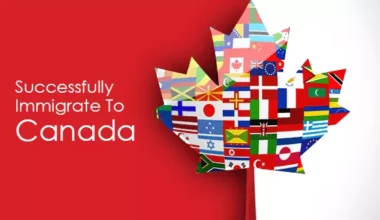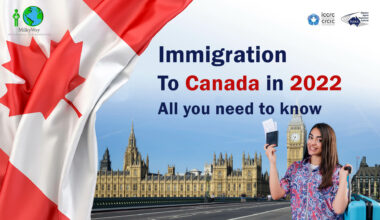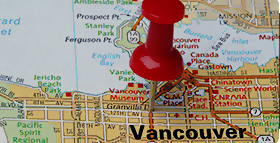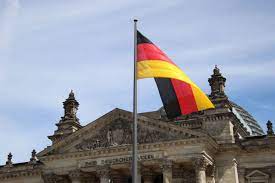If you’re considering migrating to Colombia, it’s important to plan and prepare thoroughly to ensure a smooth transition. Here are some tips to help you with the migration process:
- Research and Understand the Culture:
- Familiarize yourself with Colombian culture, customs, and traditions. Understanding the local culture will help you integrate more easily into your new community.
- Visa Requirements:
- Check the visa requirements for your specific situation. Colombia offers various visa types, such as work visas, student visas, and retirement visas. Make sure you apply for the correct visa and comply with all the necessary documentation.
- Language Skills:
- While many Colombians in urban areas may speak English, especially in business settings, it’s beneficial to learn Spanish. Having basic language skills will enhance your overall experience and help you communicate with locals.
- Financial Planning:
- Understand the cost of living in the specific city or region you plan to move to. Create a budget that considers housing, utilities, transportation, healthcare, and other daily expenses.
- Healthcare:
- Research the healthcare system in Colombia. Consider obtaining health insurance that covers your medical needs and emergencies. Colombia has both public and private healthcare options.
- Networking:
- Join expat groups, online forums, and social media communities to connect with other expats and locals. Networking can provide valuable insights, advice, and support as you navigate your new life in Colombia.
- Secure Accommodation:
- Arrange accommodation before arriving in Colombia. Whether you plan to rent or buy, ensure that your living arrangements meet your needs and are in a safe neighborhood.
- Education:
- If you have children, research schools and educational institutions in your chosen area. Understand the education system and enrollment processes.
- Cultural Sensitivity:
- Be open-minded and culturally sensitive. Colombians are known for their warm hospitality, and respecting local customs will help you build positive relationships.
- Legal Requirements:
- Familiarize yourself with local laws and regulations. This includes understanding your rights and responsibilities as a resident or expatriate.
- Transportation:
- Learn about the transportation options available in your area, such as public transit, driving, and ride-sharing services. Familiarize yourself with local traffic rules if you plan to drive.
- Banking and Finances:
- Open a local bank account and understand the banking system. This will make it easier to manage your finances and carry out day-to-day transactions.
- Emergency Preparedness:
- Know the emergency contact numbers and the location of the nearest embassy or consulate. Familiarize yourself with local emergency services and healthcare facilities.
- Job Opportunities:
- If you’re moving for work, secure a job before arriving or have a clear plan for job hunting. Research the job market and understand the requirements in your field.
- Patience and Adaptability:
- Be patient and adaptable. Moving to a new country comes with its challenges, but maintaining a positive attitude and being flexible will help you navigate through them.
Remember that the experience of migrating to a new country varies for each individual. Taking the time to prepare and being open to the cultural differences will contribute to a successful transition to life in Colombia.
Procedures
The specific procedures for migrating to Colombia can vary depending on the type of visa you are applying for and your individual circumstances. However, here is a general overview of the steps you might need to take:
- Determine Visa Type:
- Identify the type of visa that suits your purpose for moving to Colombia. Common visa types include work visas, student visas, retirement visas, and investment visas.
- Check Eligibility:
- Ensure that you meet the eligibility criteria for the chosen visa category. Different visas have different requirements, such as proof of financial means, a clean criminal record, and specific documentation.
- Gather Required Documents:
- Collect all necessary documents for your visa application. This may include:
- Passport with at least six months’ validity
- Passport-sized photos
- Proof of financial means
- Criminal record check
- Letter of employment or proof of enrollment (for work or student visas)
- Health insurance (some visas may require it)
- Collect all necessary documents for your visa application. This may include:
- Submit Visa Application:
- Submit your visa application through the Colombian consulate or embassy in your home country. Ensure that you complete the application form accurately and provide all required documents.
- Pay Fees:
- Pay the visa application fees. The fees can vary depending on the type of visa and your nationality. Check with the relevant consulate or embassy for the current fee schedule.
- Wait for Processing:
- Visa processing times can vary. It’s essential to be patient during this period. You may be required to attend an interview or provide additional information during the processing phase.
- Receive Visa Approval:
- Once your visa is approved, you will receive a notification. This may be in the form of a visa sticker in your passport or an electronic authorization, depending on the type of visa.
- Travel to Colombia:
- Plan your arrival in Colombia. Ensure that you have all necessary documents, including your visa and any additional paperwork required by Colombian immigration authorities.
- Register with Authorities:
- Upon arrival in Colombia, you may need to register with local immigration authorities. This is a standard procedure, and the requirements may vary depending on the visa type.
- Open a Bank Account:
- If you haven’t done so before arrival, consider opening a local bank account. This will facilitate financial transactions and provide proof of financial stability if required.
- Attend Orientation:
- Some visa categories, especially work visas, may require attendance at an orientation session upon arrival. This session may provide valuable information about local laws, culture, and services.
- Cultural Integration:
- Engage with local communities and make an effort to integrate into Colombian society. Learning the language and participating in local events can enhance your overall experience.
It’s crucial to check the latest information and requirements with the Colombian consulate or embassy in your home country, as immigration procedures and regulations can change. Additionally, consulting with an immigration lawyer or specialist can provide personalized guidance based on your specific situation.
Requirements
The specific requirements for migrating to Colombia will depend on the type of visa you are applying for and your individual circumstances. However, here are general requirements that are commonly associated with different visa categories:
- Tourist Visa:
- Completed visa application form.
- Passport with at least six months of validity.
- Passport-sized photos.
- Proof of travel arrangements (round-trip ticket).
- Proof of financial means to cover the stay (bank statements or letter of financial support).
- Hotel reservation or letter of invitation.
- Work Visa:
- Completed visa application form.
- Passport with at least six months of validity.
- Passport-sized photos.
- Letter of employment from a Colombian employer.
- Proof of professional qualifications or certifications.
- Criminal record check.
- Health insurance coverage.
- Work contract or letter of invitation from a Colombian company.
- Student Visa:
- Completed visa application form.
- Passport with at least six months of validity.
- Passport-sized photos.
- Letter of acceptance from a recognized Colombian educational institution.
- Proof of financial means to cover tuition and living expenses.
- Criminal record check.
- Health insurance coverage.
- Retirement Visa:
- Completed visa application form.
- Passport with at least six months of validity.
- Passport-sized photos.
- Proof of pension or retirement income.
- Bank statements or financial statements showing the ability to support oneself.
- Health insurance coverage.
- Investor Visa:
- Completed visa application form.
- Passport with at least six months of validity.
- Passport-sized photos.
- Proof of investment in a Colombian business or real estate.
- Business plan or investment proposal.
- Criminal record check.
- Health insurance coverage.
- Family Reunion Visa:
- Completed visa application form.
- Passport with at least six months of validity.
- Passport-sized photos.
- Proof of the family relationship (marriage certificate, birth certificates, etc.).
- Letter of invitation from the family member in Colombia.
- Proof of financial means to support the family member.
These are general requirements, and the specifics can vary. It’s important to check with the Colombian consulate or embassy in your home country for the most up-to-date and accurate information. Additionally, immigration regulations may change, so it’s advisable to consult with an immigration lawyer or specialist for personalized guidance based on your situation.
By Mr Solomon






